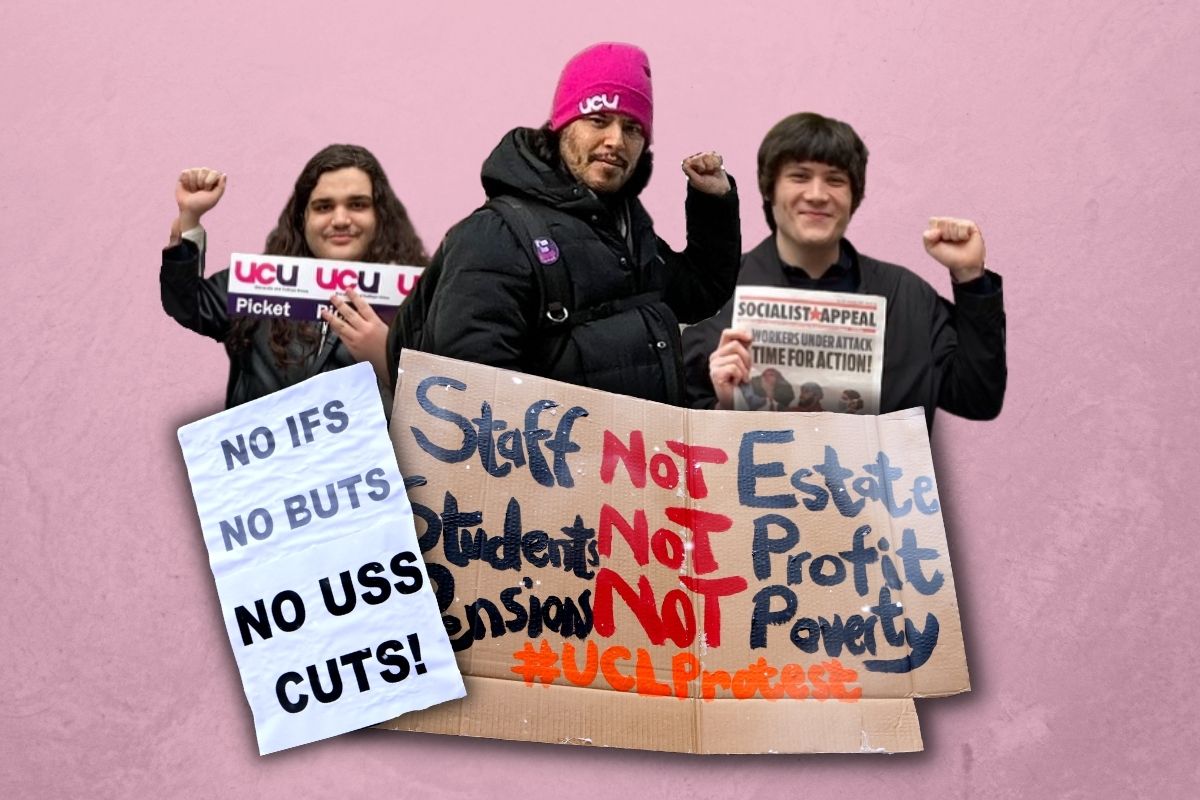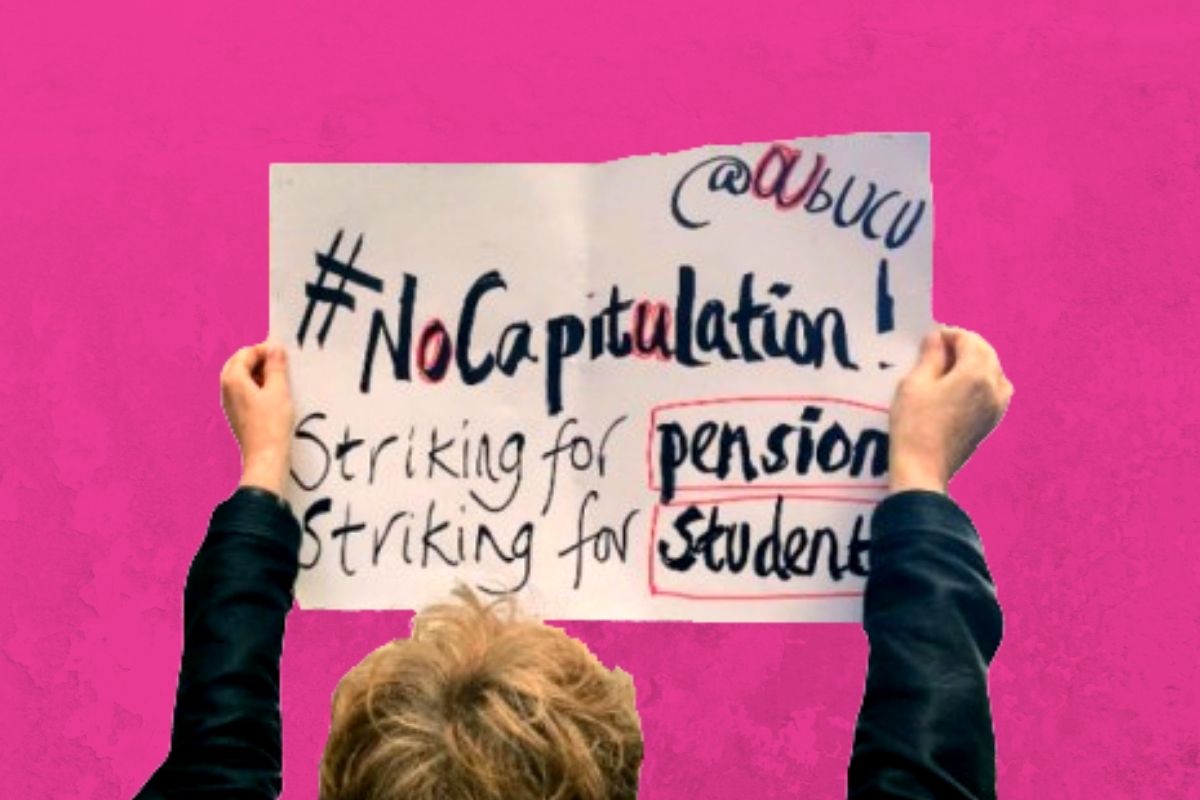Following multiple rounds of strike action, the long-running dispute between UCU members and university bosses remains at a stalemate. Union leaders are looking to deflate the struggle. Instead, we need escalation and a militant fightback.
Delegates from UCU branches across the country recently attended two Special Higher Education Sector Conferences (SHESCs): one on 20 April, focusing on the Four Fights dispute; and a subsequent conference on 27 April on the USS pensions dispute.
These conferences come following a lower than expected reballot result, with only 36 university UCU branches backing continued action over the Four Fights, and 24 for the USS dispute.
Nonetheless, this still represents a significant number of universities where workers are determined to fight on.
In advance of these conferences, however, UCU general secretary Jo Grady made her views very clear. A report circulated to members by Grady outlined her preferred strategy: that the union pause industrial action until 2023 – effectively kicking the can down the road.
This plan would start in May of this year, with protests targeting graduation and admissions periods, followed by a period of ‘mapping’ and building the membership of the union. It would culminate in a UK-wide ballot around April 2023.
All that can be said of this proposal is it would take the union several steps backwards, effectively resetting the disputes. Worse than starting from scratch, it would result in mass demoralisation, with grassroots members viewing it as a surrender to the bosses.
#NoCapitulation

The general secretary’s proposal has been rightly viewed as a betrayal by many rank-and-file members.
After four years of the USS pension dispute, and three years of the Four Fights dispute, members are effectively being told that all of their hard work, all of the pay lost, has been for nothing.
As a result, UCU activists have taken to social media to express anger at this proposal, under the hashtag #NoCapitulation – a direct reference to the grassroots resistance against the union leadership’s planned betrayal during the 2017-18 strikes.
#democracy in the @ucu must be upheld. Branches have spoken, the results are clear #nocapitulation #4fights #USS #USSmess #OneofUsAllofUs @uculeft https://t.co/aBI9XA02Oe
— Saira Weiner ? (@RedSazzler) April 26, 2022
This mood of indignation was also mirrored in the contributions of many delegates to the recent Four Fights conference.
These stressed, correctly, that you don’t build the union by withdrawing from struggle. You build it through bold action; by demonstrating that the union is willing to take the fight to the bosses.
One NEC member even stated: “We are in a war! There are no timeouts in a war!”
Another delegate revealed that he’d received emails from members of his branch stating that, if the union adopted the general secretary’s strategy, they’d leave the UCU.
Thankfully, a motion effectively outlining the general secretary’s proposed strategy was defeated.
Struggle continues

It is clear that, despite the reballot results, a significant layer of rank-and-file members reject the general secretary’s retreat and want to fight.
At the Four Fights conference, a number of motions were also passed in support of taking action this academic year, and in favour of a marking boycott. The conference also supported keeping both disputes ‘coupled’ and fighting them on a united basis.
As a result, the union has confirmed a marking boycott is now set to go ahead at 41 universities, along with a further 10 days of struggle at 39 universities.
Members have been continually led into several bouts of symbolic action that have left the bosses profoundly unmoved. As a result, it is understandable that many branches didn’t vote to continue action in the reballot. The blame for this lies with the timid strategy adopted by the UCU leadership.
A significant layer within the union is willing to continue the fight. They recognise that retreating now would give employers the green light to go on the offensive, and that the union would likely suffer as a result.
Furthermore, members understand that, given the cost of living crisis, abandoning the struggle is not an option.
What is missing is a bold, fighting union leadership that would be willing to employ militant tactics, as part of an escalatory strategy that could actually push the bosses back.






